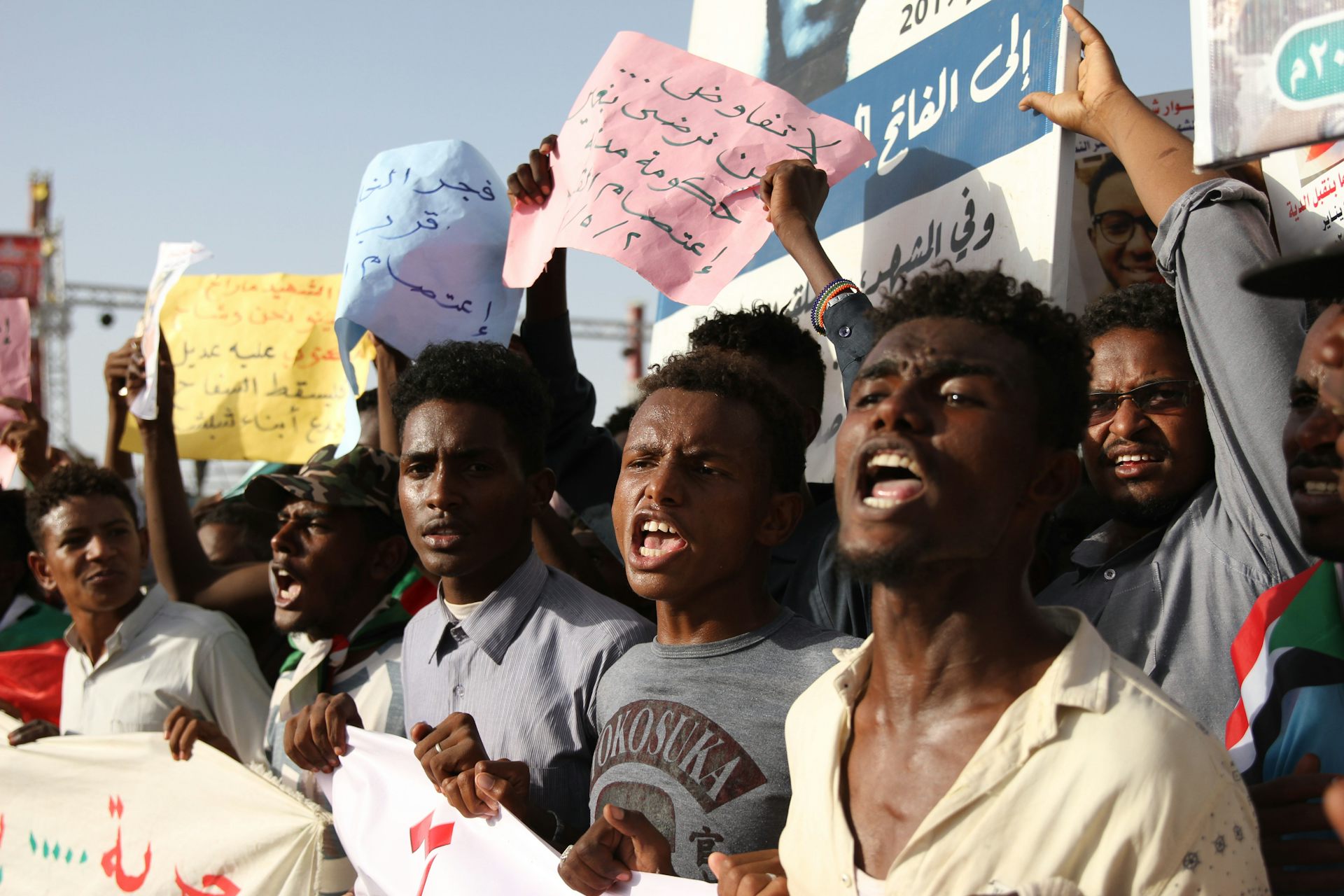
Two weeks after a transitional military council came to power in Sudan through a coup in April, African heads of state decided to ease the pressure on the new rulers.
This decision was a big mistake.
President Omar al-Bashir governed Sudan through military force, repression and divide-and-rule tactics for three decades. Years of rebellions and popular protests culminated in the mid-April coup. On taking power, the military council suspended the constitution, dissolved parliament and said it planned to rule Sudan for two years.
The Peace and Security Council of the African Union (AU) immediately condemned the unconstitutional seizure of power. It demanded that the military council step down and transfer power to a civilian transitional government. The Peace and Security Council warned that the AU would suspend Sudan if the generals did not comply with this demand within 15 days.
But as this deadline approached, the African heads of state countermanded the Peace and Security Council’s position. They extended the deadline and gave the generals three months to hand the reins to a civilian interim government. Driving this decision was Egyptian President Abdel Fattah El-Sisi, the current chairperson of the AU. Sisi is a former general who participated in a coup in his own country in 2013.
The military has engaged in tense negotiations with the protest leaders over the composition of the interim government. If the current deadlock is overcome, a new supreme council will be formed with a mix of civilians and military officers. The interim regime will thus not be purely civilian government.
The AU has a “zero tolerance” policy on coups. If it does not apply this policy strictly in the case of Sudan, there is the distinct danger that the army will continue to meet the protests with violence. Already, over 70 protesters have been killed by government forces .
Sudan could become increasingly unstable, with negative spillovers for neighbouring states. In addition, the AU’s failure to adhere strictly to its policy will weaken the credibility of that policy and reduce its potential to deter future coups.
The policy
According to the Lomé Declaration, coup perpetrators shall be given six months to restore constitutional order. During this period, the country shall be suspended from the AU. The Peace and Security Council Protocol adds that the Peace and Security Council shall institute sanctions following an unconstitutional change of government.
The policy emphasis on “shall” and “zero tolerance” offers no wriggle room for a discretionary response to coups. Coups are a scourge that destroy the constitutional order and preclude the emergence and consolidation of democracy.
There’s no doubt about the tyrannical way in which al-Bashir ruled Sudan. His war crimes were set out in the indictment against him by the International Criminal Court. There’s therefore every reason to share the Sudanese people’s joy at his downfall. But if the AU does not adopt a tough posture, there may be no progress in Sudan towards real democracy.
Precedents
Since the introduction of the anti-coup policy in 2000, there have been 16 coups in Africa – 14 between 2000 and 2014, then in Zimbabwe and Sudan. In most cases, the Peace and Security Council has indeed been tough. Research shows that suspension and sanctions have been effective: within an average period of 20 months, the targeted country reestablished constitutional order through elections.
In all these cases, the African pressure was intensified through sanctions imposed by the US, the European Union and other providers of financial aid. It was also accompanied by mediation undertaken by African organisations, which facilitated the return to constitutional rule.
The message from the AU and its international partners was thus clear: unlike the widespread tolerance of African coups in the 1970s and 1980s, a coup is no longer a viable means to retaining power. It is a cul de sac. The only exit for the coup regime is to step down and permit free and fair elections.
In short, pressure shuts the door to sustained military rule, and mediation opens the door to restoring constitutional order in a legitimate manner.
The positive outcomes of African and international pressure can be contrasted with cases where the AU failed to apply its policy. For example, the AU turned a blind eye to the de facto coup in Zimbabwe in 2017. This allowed the army and ruling party to get away with forcibly deposing President Robert Mugabe and installing another brutal hardliner, Emmerson Mnangagwa.
In the case of Zimbabwe, as well as Egypt, a coup leader contested presidential elections and won. This was a violation of the AU policy, which bans the perpetrators of unconstitutional action from running for office. The ban is meant to prevent coup leaders from whitewashing their offence and staying in power via the ballot box.
No ‘ifs’ and ‘buts’
There should be no debate about the main thrust of the continental and international response to the coup in Sudan. Suspension and sanctions should be imposed immediately, and should be lifted only when constitutional rule is restored through free and fair elections have been held.![]()
Laurie Nathan, Professor of the Practice of Mediation, University of Notre Dame
This article is republished from The Conversation under a Creative Commons license.

